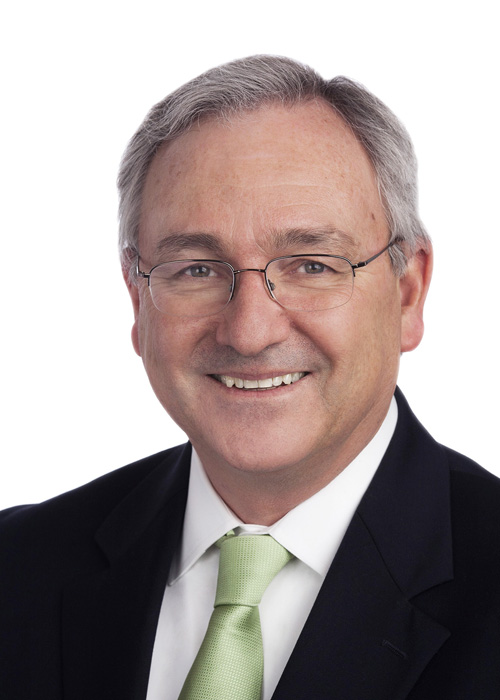Peter Furniss has been structuring, financing and restructuring energy and infrastructure projects and asset sales for over 15 years. While at NRG Energy, Mr. Furniss structured and negotiated key elements of NRG’s acquisition of Bluewater Wind as well as NRG’s award-winning $500 million financing of peaking facilities in Connecticut (through the GenConn joint venture with The United Illuminating Company). Prior to joining NRG, Mr. Furniss was General Counsel of Tamuín International, a subsidiary of Exelon Corporation, where he oversaw the disposition of a number of power plants, including two pet coke fueled plants in Mexico. Previously at Sithe Energies, he was responsible for the legal aspects of the 2001 financing of the 3,000MW Boston Generating portfolio. Mr. Furniss began his professional career as an associate in the Project and Structured Finance group of Debevoise & Plimpton. He holds a B.A. summa cum laude and an M.A. from Columbia University and a J.D. magna cum laude from Harvard Law School.
Scott Silverstein has over 17 years of experience in energy regulation, M&A and finance in the legal, corporate and private equity sectors. Mr. Silverstein was Senior Vice President, Regulatory Affairs at both K Road Power and EBG Holdings, where he directed all aspects of the regulatory affairs related to the companies’ 3,000 MW portfolio of natural gas and oil fired power plants in and around the city of Boston. Mr. Silverstein also conducted due diligence on a number of fossil fuel fired facilities and was a part of the senior management team that successfully merged EBG Holdings into US Power Generating Company in 2007. Prior to joining K Road, Mr. Silverstein was Vice President, Chief Regulatory and Asset Optimization Counsel at Sithe Energies. Mr. Silverstein joined Sithe from the law firm of Hogan & Hartson LLP, where he was an Associate in the energy practice of the firm’s Washington, D.C. office. Mr. Silverstein holds a B.A. magna cum laude from Boston University and a J.D. cum laude from the Georgetown University Law Center. In April 2010, Mr. Silverstein was elected to and began serving a 3-year term on the Board of Education of Springfield, NJ.
Mr. Ehrenzeller has over 18 years of experience in the independent power industry. Prior to joining Footprint Power, he was Senior Vice President & Chief Financial Officer of K Road Power and EBG Holdings, with 3,000 MWs of natural gas and oil fired generation in and around the city of Boston. Mr. Ehrenzeller was a part of the senior management team that successfully merged EBG Holdings into US Power Generating Company in 2007. From 1993 through 2005, he was Vice President and Controller of Sithe Energies. Mr. Ehrenzeller began his professional career with Ernst & Young, where he served public and privately owned audit clients in the utilities, media and entertainment and shipping industries. He is a certified public accountant and received his Bachelor of Science cum laude in accounting and economics from New York University.
Peter Nixon has more than 20 years of experience in the telecom and energy spaces. Most recently as Vice President Business development and Finance at Tioga Energy, a leading North American solar developer. At Tioga he had a key role in Project Finance as well as leading the company’s Canadian development activities. He closed over $150 MM of US construction and permanent financing facilities. He was also instrumental in obtaining 20 MW of utility scale solar FIT contracts in Ontario. Previously he self-funded, developed and sold several Greenfield wind projects in Ontario, the largest sold to a $20 billion energy provider. Mr. Nixon was also General Manager of MFN (now AboveNet) Canada, where he sold the company’s assets to Telus, a major Canadian telecommunications company. He also acted as Chief Operating Officer of Cabletel, the largest Canadian supplier of broadband telecommunications equipment. Mr. Nixon holds a Masters in Business Administration from the INSEAD School of Business, and a Bachelor of Engineering in Engineering Physics from the Royal Military College of Canada.
Marcia MacClary has more than 35 years experience in community affairs, crisis communication and government relations. In her role as Director of Public Affairs for Hess LNG Corporation, Ms. MacClary worked to support media outreach and created public outreach and marketing materials consistent with permitting requirements for federal, state and local agencies. Prior to joining Hess, she managed community affairs and communications for Sithe Corporation/Exelon Corporation during the initial purchase of the Boston Edison generation assets and the expansion of those power generation facilities in Massachusetts. Additionally, she was responsible for conducting preliminary research and outreach into other power generation development locations in the United States and Canada. Marcia’s past experience also includes public affairs consulting with Cabot Corporation and Monsanto Corporation. Ms. MacClary holds a bachelor’s degree from Tufts University, a master’s degree from Boston University, and is a member of the Public Relations Society of America.
George Wilson has over 35 years of experience in the electric utility business. Prior to joining Footprint Power, he was first the Development Manager (under Sithe Energies, Inc.) and then the General Manager (for subsequent owners) of Fore River Station located in Weymouth, MA. Mr. Wilson has been active in development, permitting and engineering electric generating facilities for a number of companies including Sithe Energies, Inc., Bio Development Corporation and Stone and Webster Engineering Corporation. Prior to entering the power generation business, Mr. Wilson worked in the Marine Transportation field. He was a startup engineer for General Dynamic’s tanker program in Quincy, MA and worked for the American Trading & Transportation as a Merchant Marine Officer. Mr Wilson is a graduate of Massachusetts Maritime Academy and has a degree in Marine Engineering. He is also registered as a Professional Engineer (Mechanical) in New Hampshire and Massachusetts.
Donna Roberts has over 20 years in the independent power industry. Prior to joining Footprint she was the Director of Finance and Controller for the Boston Generating Assets, a 3,000 MW portfolio of natural gas and oil fired plants in the Boston Metro area most recently purchased by Exelon. Ms. Roberts worked with the BG portfolio under various owners from 1998 to 2012. Previously, Ms. Roberts was the Controller for Bio Development Corporation. During her tenure with Bio Development the company developed, financed and constructed the L’Energia facility, a 90MW combined cycle natural gas and oil peaking QF unit in Lowell, MA. Ms. Roberts began her professional career in public accounting working with various construction, real estate investment and not for profit clients. She is a certified public accountant and received her Bachelor of Science degree in accounting and her Associates in Science degree in management from Bentley College.














